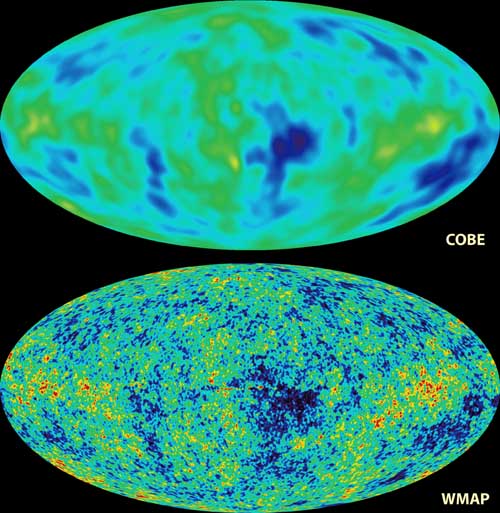Hi Byblos! And welome to you too.Byblos wrote:Not as a religious person, but a person who appreciates science, how do you think the universe came to be? Let's start with that and see where this leads.
I'd hate to know what you think a difficult question is! lolwhy don't we start a discussion with a simple question
...
how do you think the universe came to be?
I'll ask a question of my own then address yours, if I may: Do you think the issue of "how the universe came to be" should be the foundation upon which a person decides whether there is a god ot not?
I have to confess I groaned slightly when I saw your question. I know your answer: you turn to the ideas of Christianity and the answer is "a creator god". You know my answer: I turn to the ideas of cosmology and the answer is... well I have a choice of options as I shall briefly explain.
Of course there are other tools of human thinking than Christianity or cosmology one could to turn to such as, for example, Jainism. Jains believe...
the universe was never created, nor will it ever cease to exist. It is eternal but not unchangeable, because it passes through an endless series of alternations or swings.Source
Perhaps it is annoying to hear such obscure ideas brought up and suspect I am trying to confuse the issue. But I have known Jains and and been to a Jain wedding (of a colleague). Jains and Jainist origins ideas are alive in the world today.
But neither Christianity nor Jainism nor any other "traditional" ideas do it for me. I prefer instead to turn to the ideas of cosmology.
Of course, I sacrifice certainty and may only speculate by doing so; I sacrifice neat, bite-sized answers like "god" or "alternations"; I sacrifice being able to answer why and must make do merely with how; I sacrifice setting my answer in stone and must keep up to date with cosmology during my life to "upgrade" it. But for all that it is cosmology that hits my spot and fills me with awe and wonder.
I consider cosmology to be "informed confusion" and religious answers to be "naive clarity" and therein lies the former's strength.
We see strong evidence for the inflationary Big Bang model. Yet the Big Bang did not start the universe - it is an inflationary description of how the universe expanded. You can see a description of the first three minutes here (click Astrophysics then Weinberg's First three minutes). But it tells us nothing about what happened at time = 0. As Brian Greene says, it does not tell us what banged in the big bang.
There are differing ideas. Greene himself speculates that the bang was a kind of quanutm fluctuation which he calls cosmic inflation. Stephen Hawkings talks of m-branes which, he argues, account for dark matter and are a truer picture of the big bang. There are other ideas but I'm really not up to date and certainly am no expert. The Elegant Universe has been on my shelf for two months and is almost due back to the library and I just never found time to read it this summer.
These strange, developing and inspiring ideas suggest that perhaps it is meaningful to talk about beyond or even before the known universe, afterall.
Perhaps, then, the Jains have had it right all along. I seriously doubt that but who knows?
BTW I do not expect you or anyone to go and actually read the links I provided. Personally I find it annoying when someone just says "read all this then get back to me". I'm just evidencing that I am not making all this up out of thin air, however rusty and erroneous my grasp of cosmology might be.
Blob
